BASIC PROJECT DATA – PROJECT IDEA
Project ID: PA1A095
NEED AND ADDED VALUE FOR THE DANUBE REGION STRATEGY
This project intended to examine the tremendous impacts of innovation dynamics as they become critical for the sustainable development of ports in the European Union. Technological changes and market pressures will drive requirements for mastering innovative port operations and generating the necessary human resources, i.e. people with the right skills, training and qualifications to understand, master and exploit all the advantages provided by the new technologies.
The project would have addressed sectoral changes and human issues, specifically needed skills, as a component of wider efforts to make EU ports more competitive and resource-efficient.
OBJECTIVE(S) OF THE PROJECT
The main goal of the project was to establish a mutually recognisable framework on the training of port workers in different fields of port activities. The project would have supported both the implementation of the International Labour Organization’s “Guidelines for Training of Workers in the Port Sector”’ and the objective of the “Social Agenda for maritime transport” for the establishment of a mutually recognisable framework on the training of port workers in different fields of port activities. It would have identified anticipated human resource demand profiles, skill and training needs for EU ports in the 2030 horizon. It should have facilitated consensus building on the next steps that need to be made in accomplishing the objectives of a sustainable and efficient EU port system.
INTENDED PROJECT ACTIVITIES
The project structure consists of three main work packages (besides management and communication and dissemination issues):
- Analysis of status quo of formal and informal education and training with respect to port activities
- Future challenges and demands with respect to the education and training of port workers
- Roadmap for a European Port Training Policy
Furthermore, the project would have installed a high-level advisory commission in which social partners as well as authorities would have been invited to participate in order to ensure that the outcomes of the project would be discussed with all relevant stakeholders. Members of the Danube Region Strategy SCOM would have been invited to the meetings of the high-level advisory commission as well.
TRANSBOUNDARY IMPACT
The project would have been a first study for the Commission with respect to challenges foreseen in the horizon 2030 regarding the human element. It would have highlighted the main challenges foreseen within the sector and would have addressed the implementation of the ILO Guidelines. The outcomes would have affected all countries with ports (inland and/or maritime).
PROJECT BENEFICIARIES / TARGET GROUPS
- Education and training institutes
- Social partners
- Ministries of transport
- Terminal operators
- Port authorities
STATUS AND TIMEFRAME
The project was not realised.
Project duration would have been from 2013 – 2016.
FINANCING
Total budget: 1,500,000 EUR (indicative)
Funding was not provided.
PROJECT TEAM
Project leader: Stichting STC-Group / The Netherlands (website: www.stc-group.nl)
Address: Lloydstraat 300; 3024 EA Rotterdam / The Netherlands
Project partner(s):
- Port of Amsterdam / The Netherlands
- Duisburger Hafen AG / Germany
- University Duisburg – Essen / Germany
- Romanian Inland Port Union / Romania
- CERONAV – Romanian Maritime Training Centre / Romania
PROJECT ENVIRONMENT
STRATEGIC REFERENCE
- European Commission: Port Policy Package
- White Paper on Transport
- ILO Guidelines on training in the port sector
RELEVANT LEGISLATION
89/391/EEC lays down rules on safety and health related training of workers which fully apply to work in ports. This directive sets the responsibility of the employer to ensure that each worker receives adequate training on safety and health matters.
OTHER
Port Labour Study executed for the EU Commission
EUSDR EMBEDDING
EUSDR COMPLIANCE
OTHER RELEVANT ISSUES
PROJECT REQUIREMENTS
The project should have established a mutually recognisable framework on the training of port workers in different fields of port activities. For this reason, active participation of all relevant stakeholders would have been of utmost importance for the project.
FOLLOW – UP PROJECT
This project was intended as a first step for the EU Commission.
META DATA
Data provided by: Jaap Gebraad (STC-Group) – 24.10.2012
Download pdf.



